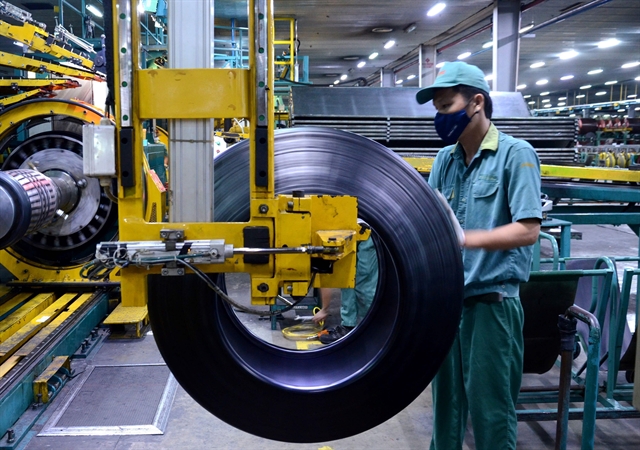Viet Nam's PMI in December falls to three-month low
VGP - The Viet Nam Manufacturing Purchasing Managers' Index (PMI) fell to three-month low of 49.8 in December compared to 50.8 in November, according to the latest report released by S&P Global on January 2.

The decrease signaled a fractional deterioration in overall business conditions at the end of this year.
Despite increases in output and new orders, as firms scaled back their employment and stocks of purchases, the health of the sector experienced worsening.
Although both output and new orders increased in December, rates of expansion were only slight and the weakest in the respective three-month growth sequences. Some firms signaled demand improvements, while others reported that market conditions had softened.
According to the report, expected rises in output in the coming months led to a renewed increase in purchasing activity, with the rate of expansion the fastest in four months. Firms remained reluctant to hold excess inventories, however, and reduced stocks of purchases accordingly. Stocks of finished goods were also down.
Inflationary pressures picked up in December, with both input costs and output prices rising at sharper rates than in November.
Economics Director at S&P Global Market Intelligence, Andrew Harker, said: "It was a subdued end to the year for the Vietnamese manufacturing sector as growth of output and new orders slowed.
Global market uncertainty also acted to depress confidence, which fell to the lowest in more than a year-and-a-half. This may in part reflect the uncertain picture with regards to plans by the incoming US administration around tariffs. Further announcements on this in the New Year will help to provide clarity on any potential impacts on Vietnamese manufacturers".
ASEAN manufacturing PMI falls to contraction zone in December. The headline ASEAN PMI, the index for seven countries in the Association of Southeast Asian Nations, came in at 49.7 in December. The figure was down from November's reading of 50. Although it's down only slightly, it fell back to the contraction zone as any reading below 50 represents contraction./.
